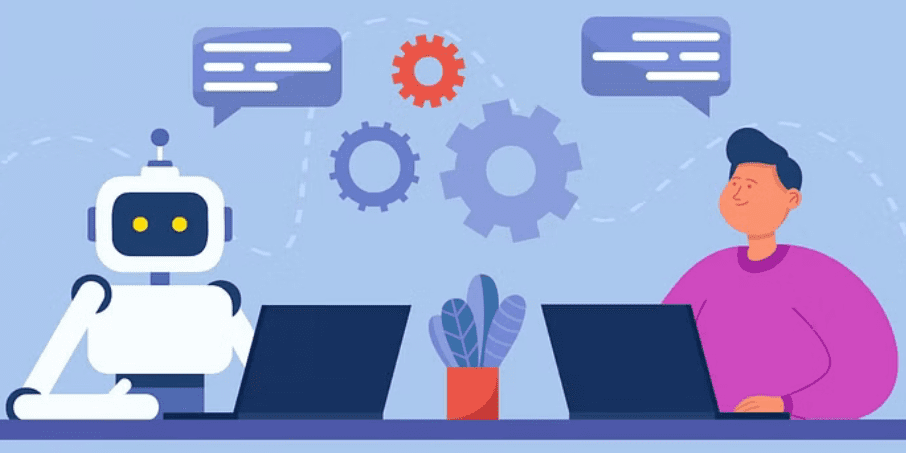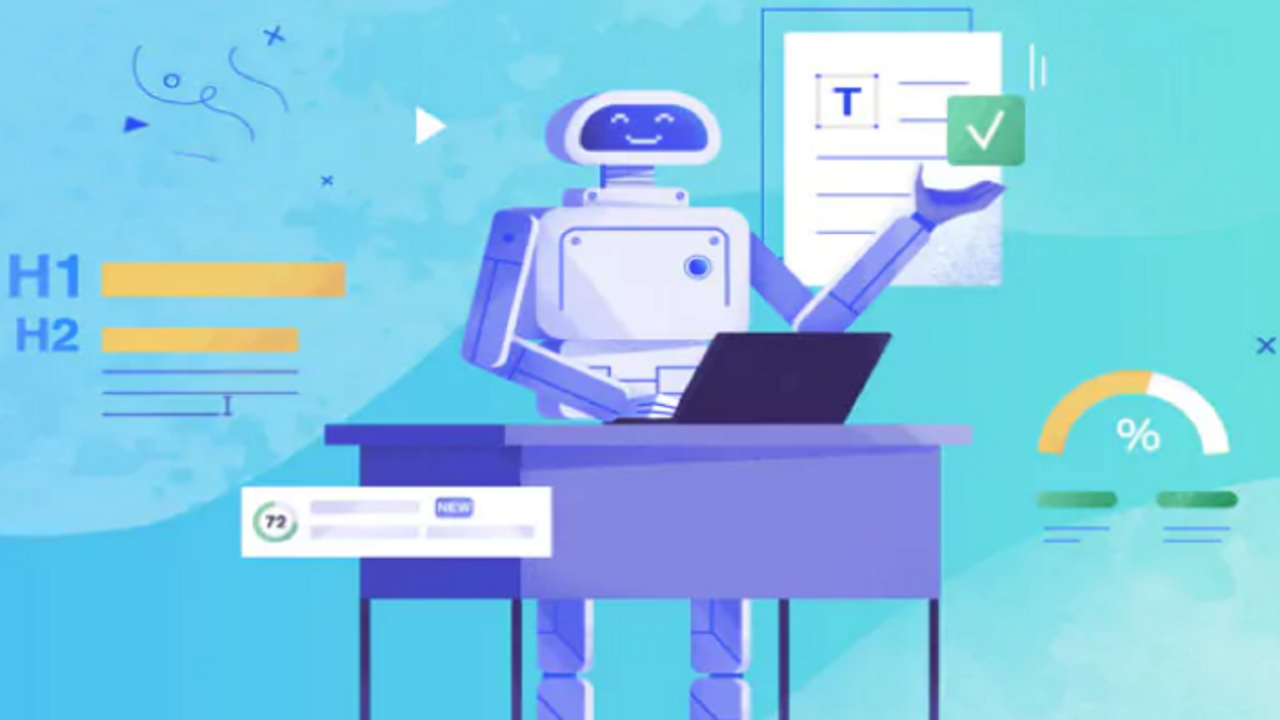Thanks to the advancements in artificial intelligence technology, content generation doesn’t have to be a headache-inducing task. As AI increasingly takes over manual content production tasks, it’s wise for marketers to understand the different types of AI-generated content that exist and which benefit the most from it
These tools can help us produce high-quality content appealing to your audience and on-brand. In this blog post, we’ll explore the top types of AI-generated content in marketing. By leveraging these types of content, you can elevate your content strategy and gain a competitive edge in the market.
1. Social Media Posts (58%)
The most popular use for marketers leveraging AI for content is for social media posts, and with good reason.Social media marketers have to make content they hope their audience will enjoy, and using a content assistant makes managing a social media calendar much easier. Marketers can use AI for social media posts:
- Content Creation: AI tools can help generate content ideas, suggest topics, and even write headlines for social media posts. In fact, 35% of surveyed marketers use AI to get ideas or inspiration.
- Scheduling and Posting: AI-powered social media scheduling tools can help you automatically post your content at the most effective times, and even optimize your content for specific social media platforms.
- Audience Analytics: AI can help you better understand your audience through data analysis. This information can then be used to craft more effective and relevant social media posts
2. Product Descriptions (50%)
50% of marketers who use generative AI found that the technology is helpful for product descriptions.
It can be challenging to find the words to describe new products, especially when you’re selling to an audience that doesn’t know the terminology as well as your team. Marketers can use artificial intelligence not only accurately to explain a product’s functionality and features but also in a way that’s accessible and clear to the general public.
3. Emails (43%)
43% of marketers that regularly use AI find it helpful for email marketing.
Catching your customer’s attention through email subject lines is a challenge in itself, and even trickier to get them to click open. With the help of AI, marketers can improve their strategy through:
- Timing Optimization: AI tools can suggest the best time of the day and day of the week to send a particular email based on when the recipient is most likely to engage with the email. This can improve open rates, click-through rates (CTR), and conversions.
- Subject Line Generation: AI can generate effective and catchy subject lines by analyzing past email campaigns, and the subject line’s performance. If these tools can create grabby subjects, it could increase open rates.
- A/B Testing: AI can be used to conduct A/B testing, where two different versions of the same email are sent to a random portion of the audience, and performance is measured. Based on the results of this testing, the best-performing email variant can then be sent to the rest of the audience, to maximize desired metrics.
4. Images (36%)
Marketers have much to gain from using AI for images as 36% of marketers find it helpful for image creation. Regarding search engine optimization, images can improve your rank in the search engine, and add a more attention-grabbing element to your blog, social media posts, or even product staging.

5. Blog Posts (35%)
Over one-third of marketing professionals found artificial intelligence tools helpful for making blog posts. As a writer myself, one of the first thoughts I had when introduced to AI was how it could improve my writing process. Some of the best uses for AI writing generators in blog posts are:
- Efficiency: Marketers can save time and resources by automating various aspects of blog post creation, such as topic generation, research, and even drafting. This technology can also reduce the time spent on menial tasks like formatting, proofreading, and optimizing content for SEO.
- Personalization: AI can analyze customer behavior, preferences, and browsing history to help target blog content to specific audiences. Personalizing blog posts can make the content more relevant to the audience, potentially increasing engagement and conversion rates.” https://blog.hubspot.com/marketing/top-types-of-ai-generated-content-in-marketing
Source: Hubspot


